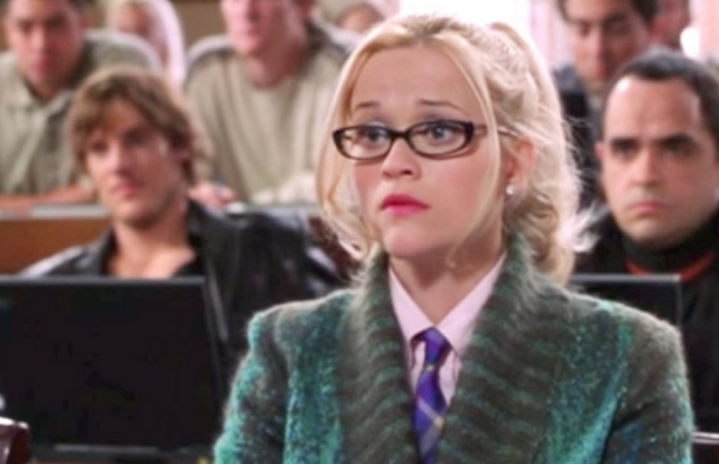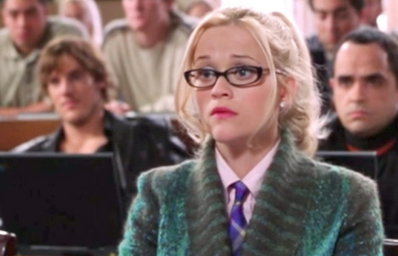My grandmother used to brush my hair when I was a child and compliment me on how fortunate I was to be a blonde. She incessantly praised my hair as being my best feature and claimed that people preferred blondes. She had no idea that I would eventually despise the color of my hair.
I’ve been a blonde for most of my childhood and all of my adult life. I had the natural caramel highlights that came with being born blonde, but when I turned about 12 years old, my gold highlights started fading into a more chestnut tone. My mother then made the decision to bleach my hair in order to prevent me from turning into one of the “many girls with dark hair.” When I was later encouraged to color my hair however I pleased I set myself on the mission of getting it lighter and lighter with each visit to the salon. First came a half-head of highlights, but in the following bimonthly sessions, I had a full head of golden hair before deciding that I wanted to be blonder and dye it a platinum blonde shade.
“Not being blonde became my worst fear, not because I genuinely cared about the color of my hair, but because of what not being blonde meant to me: going overlooked.”
I don’t recall ever worrying much about people thinking I was dumb, but that all changed one afternoon while I was eating lunch with a friend of a friend. I mentioned that I was worried about losing my 4.00 GPA because I received a B+ in a math class. He looked at me astonished as I stated my worries about the class and said, “You don’t appear like someone who gets good grades”. I cracked. I quickly developed an obsession with altering my appearance to seem smarter. I began dressing less provocatively; I switched from tank tops to turtlenecks, from shorts to pants that would conceal my legs, and lastly, I replaced my dazzling, long, gold hair with an auburn shade and a bob cut.
Blondes are stereotyped, particularly as being superficial, egotistical, and unintelligent among women. However, there is a stereotypical dichotomy on the perception of blonde-haired women. On one hand, blonde haired women have always been viewed as desirable and attractive, but on the other hand, they are sometimes viewed as “women who depend on her looks rather than on her brains.” I would have done anything at the time to avoid falling into those stereotypes. I needed people to take me seriously in order to grow into the person I desired to be, because I had so much to express, so many opinions that mattered, and aspirations to pursue. I began to worry that my classmates, especially the male ones, wouldn’t respect me sufficiently and that they wouldn’t listen to my ideas because I was the “dumb blonde” in the classroom. I did everything I could to hide my identity, not because I resented who I was, but because I hated how the world saw me.
The idea that blondes are dumb originated in the play Les Curiosités de la Foire, a 250 year-old production based on the misdeeds of the famed courtesan, Rosalie Duthé. This play portrayed blondes as both stupid and sexually attractive. For instance, in the play, Duthé would tend to pause for long periods of time before speaking, giving the impression that she was not only dumb but also literally retarded. Over time, this belief has been reinforced, and oddly, blonde women themselves have internalized it. Jess Commons, lifestyle director, adds: “There are times I’ve felt stupid myself because of my blonde hair. Often, I have felt like I didn’t appear as intellectual as women in the room who had cool or short, sensible haircuts. In the past, I have felt as though I was being judged for being stupid and basic when I almost certainly wasn’t being judged at all.” Women like Commons and I have struggled with our physical features to avoid falling victim to stereotypes. We frequently believe that we must exert ourselves more in order to be acknowledged and heard. We frequently feel that we are being judged, despite the fact that we are not, as Commons noted. We’ve consistently been told that our appearances determine who we are, how intelligent we can be, and how capable we are of achieving things.
The dumb blonde label is just another misogynist stereotype that seeks to silence and degrade women. Blondeness overlaps with ignorance, promiscuity, gold-digging, and blatant self-interest in the Venn diagram of stereotypes. But it’s vital to understand that stereotypes hurt, regardless of whether you’re a blonde, brunette, redhead, or anything in between. If this hatred has taught us anything, it’s that we should no longer judge one another based solely on appearances.


